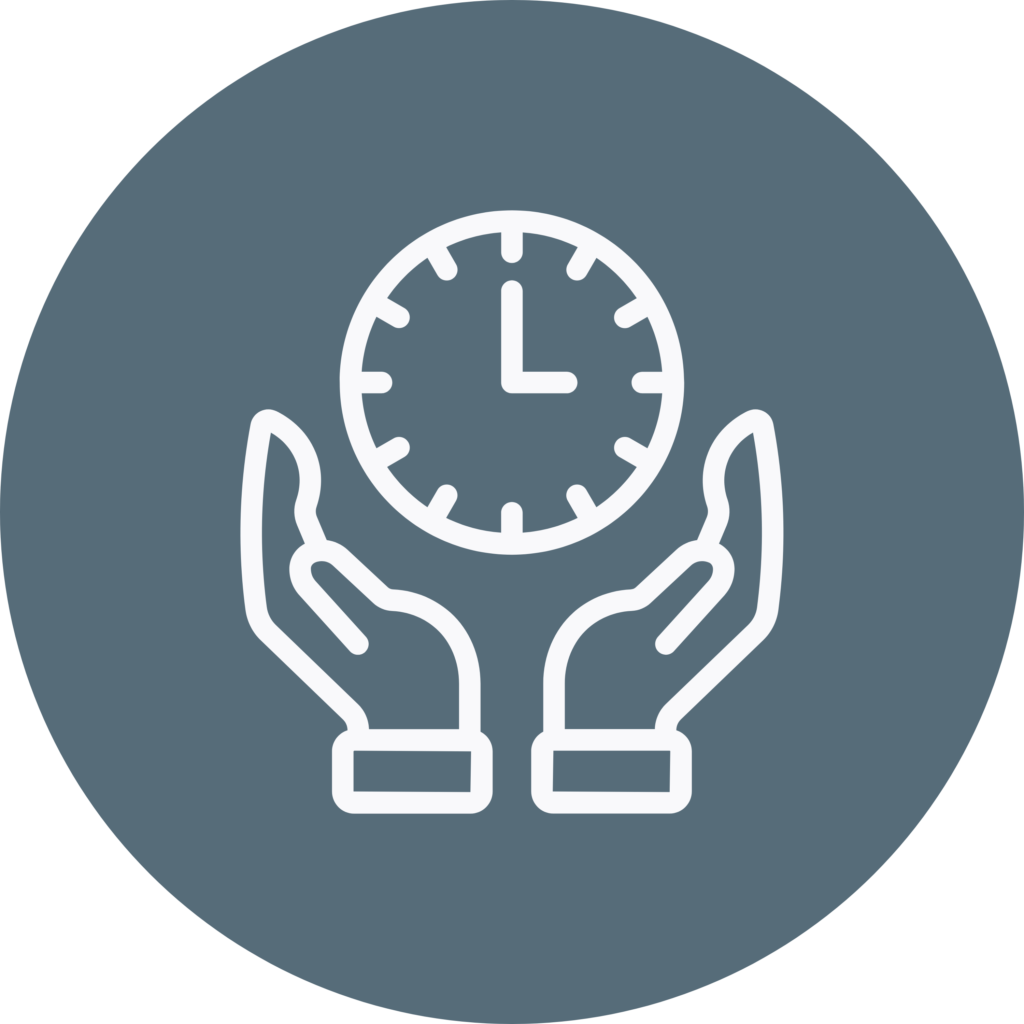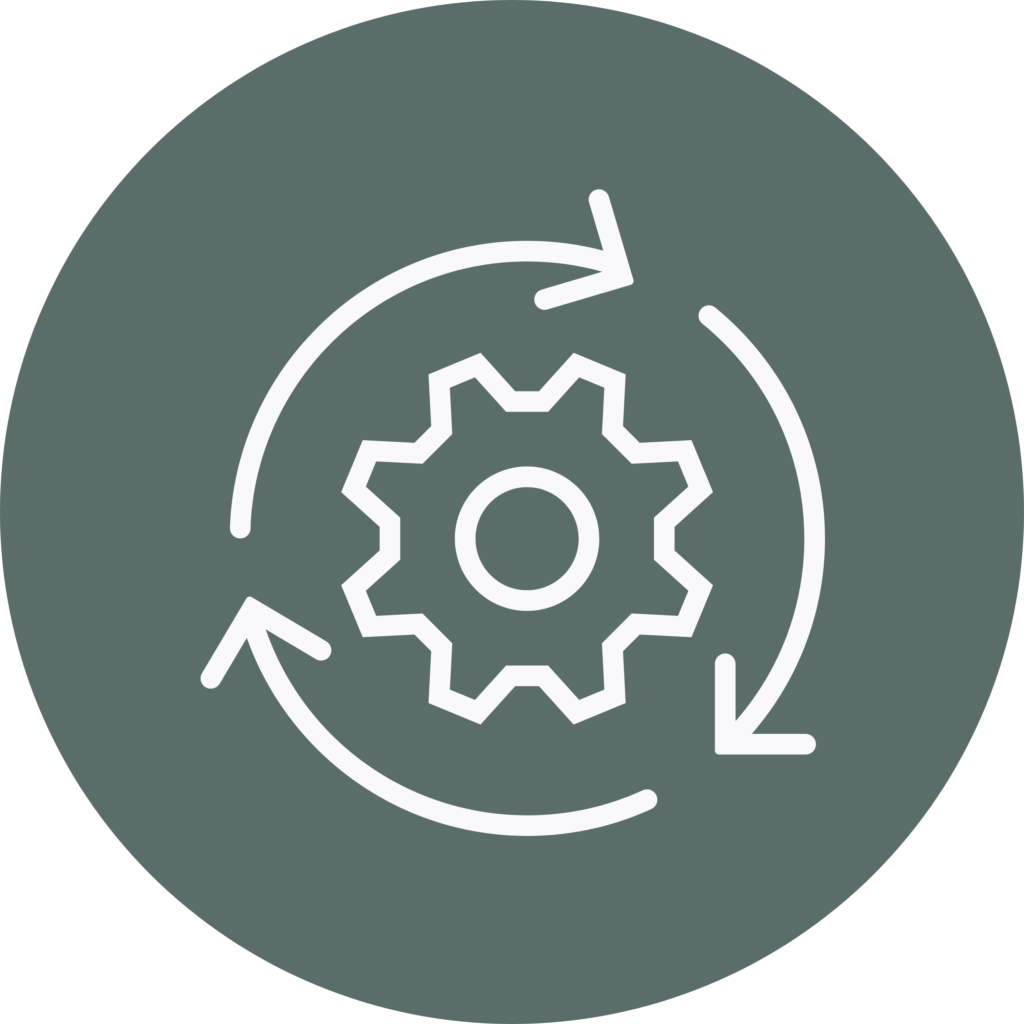
Ever feel like planning just isn’t for you? Maybe you’ve told yourself that you don’t have the time, that you have tried before and plans never work out, or you are waiting for the perfect time before you start.
If that sounds familiar, you’re not alone.
The truth is, planning often gets a bad rap. We imagine color-coded calendars and rigid schedules that leave no room for real life. But that image is far from the truth. Planning isn’t about perfection, it’s about direction. And if you’ve been avoiding it because of some long-held assumptions, it’s time to look closer.
Let’s debunk three of the most common planning myths that quietly hold people back and explore what actually works.
3 Common Planning Myths That Hold You Back

Myth #1: I don’t have time to plan.
The Truth: You don’t have time not to plan.
When your day feels crammed, it might seem like planning is a luxury. But the reality is, planning helps you reclaim your time. Without a plan, you’re more likely to bounce from task to task, react to distractions, or forget priorities altogether. That constant juggling leads to exhaustion, and often, very little progress.
Why It Matters: Even five minutes of planning in the morning can help you work smarter, not harder. It gives your day structure, lets you prioritize, and allows you to say no to the distractions that don’t align with your goals. In the long run, planning saves time by preventing wasted effort.
Try This: Start with a simple daily plan. At the beginning of each day, write down your top 3 priorities. That alone can change how you manage your time and energy.

Myth #2: Plans never work out anyway, so what’s the point?
The Truth: Plans are meant to guide, not guarantee.
Life is unpredictable. Plans will shift, goals will evolve, and unexpected challenges will come up. But that doesn’t make planning useless, it makes it essential. A plan gives you direction. Even if the path changes, you’re not wandering aimlessly, you’re adjusting with purpose.
Why It Matters: Having a plan means you’re making intentional choices based on what matters most to you. It becomes your compass, helping you stay focused when distractions or roadblocks show up. Even when you veer off course, you’ll know how to get back on track.
Try This: Instead of seeing your plan as a rigid set of rules, treat it like a working draft. Revisit it weekly, adjust it freely, and use it as a support tool, not a source of pressure.

Myth #3: I have to have everything figured out before I plan.
The Truth: Planning doesn’t require you to know every detail or have all the tools in advance. It’s about beginning with what you do know and staying open to changes as you learn and grow. A plan is meant to be flexible and evolve, not set in stone.
Why It Matters: Waiting until everything is perfectly clear before you plan often means waiting forever. Without a plan, it’s easy to get stuck or overwhelmed by uncertainty. Starting with a simple framework helps you make progress, even when things are unclear, and reduces anxiety by giving you direction.
Try This: Begin with a broad goal or a rough outline of what you want to achieve. Focus on the key steps you’re confident about, then revisit your plan regularly to adjust and refine it as new information or opportunities arise. Give yourself permission to be flexible, your plan is a tool, not a contract.
Progress Beats Perfection in Planning
Planning often gets misunderstood as needing to be perfect or fully detailed before you begin. In reality, it’s a dynamic process that grows and shifts as you gain clarity. When you release the pressure to have everything figured out upfront, planning becomes a powerful tool that supports your journey rather than limiting it.
Flexibility is key. Life is unpredictable, and your goals or circumstances may change along the way. A good plan gives you direction without locking you into a rigid path. It helps you respond to challenges with confidence and keeps you focused on what matters most, even when things don’t go exactly as expected.
Ultimately, planning is about progress, not perfection. Starting with a simple framework based on what you know allows you to build momentum and make meaningful strides toward your goals. By revisiting and adjusting your plan regularly, you create a sustainable path forward, one that evolves with you and sets you up for long-term success.
Join Our Tribe of Dreamers, Doers & Planners!
Planning tips, goal-setting inspiration, and simple strategies to help you create a life you love – delivered straight to your inbox.



